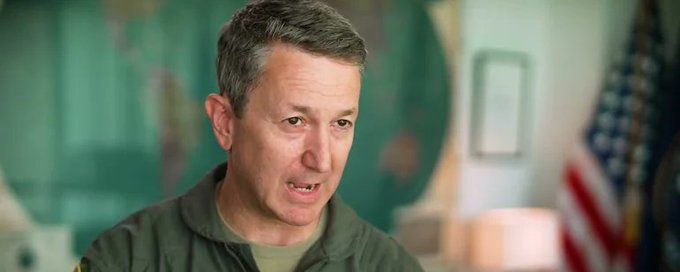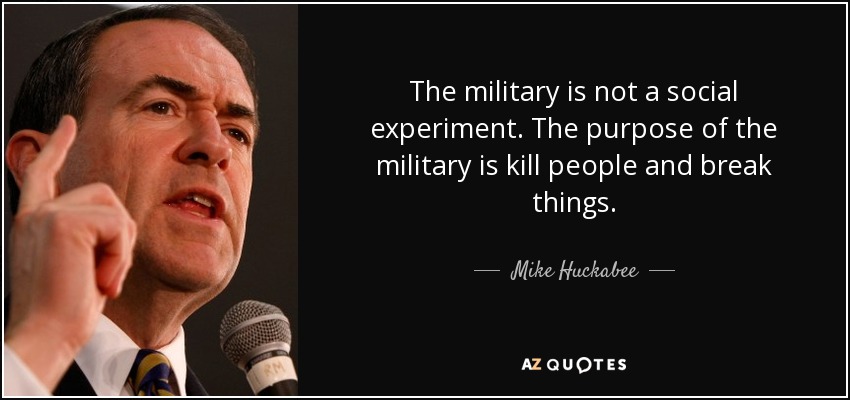Diogenes
Nemo me impune lacessit

 OUR MISSION ISN'T DEI; IT'S TO MAKE AMERICA'S ENEMIES DIE
OUR MISSION ISN'T DEI; IT'S TO MAKE AMERICA'S ENEMIES DIE 

His career, spanning over three decades, is not merely a collection of accolades but a testament to strategic foresight, combat-tested decision-making, and an ability to unify disparate forces under a single operational vision.
Those who have served with Caine describe him as possessing an uncanny ability to distill complexity into decisive action, a quality indispensable for guiding the United States military in an era of both conventional and unconventional threats.
His experience, ranging from fighter pilot to senior intelligence liaison, places him in a uniquely advantageous position to oversee the modern battlespace where cyber, space, and kinetic warfare increasingly intersect.
President Trump made the right decision in firing Gen. CQ Brown Jr., who had allowed divisive and destructive DEI policies to undermine the effectiveness and unity of the armed forces.
By choosing Lt. Gen. Dan Caine as his replacement, Trump signaled a return to meritocracy, operational readiness, and a military focused on warfighting rather than political activism.
Caine’s nomination represents a critical course correction that will restore the military’s core mission and ensure America’s armed forces remain the most lethal and effective fighting force in the world. Now, the Senate must act swiftly to confirm him, ensuring that the Pentagon’s highest-ranking military officer is a leader committed to strength, competence, and national defense above all else.
Caine’s early career as an F-16 fighter pilot provided him with firsthand experience in high-intensity combat operations. His service in the immediate aftermath of September 11, 2001, when he scrambled to protect the nation’s capital, is emblematic of his readiness to take command in crises.
That moment was not merely symbolic; it foreshadowed a career spent anticipating threats before they materialized and responding with clarity when they did. This ability to remain composed under pressure was further exemplified when he led coalition air operations during the opening night of Operation Iraqi Freedom, a mission requiring intricate coordination across allied forces and various branches of the U.S. military. Few officers can claim both the tactical acumen of an ace pilot and the strategic wisdom of a wartime commander; Caine embodies both.
Beyond the cockpit, Caine has demonstrated an exceptional ability to navigate the complexities of joint and interagency operations. His tenure at Joint Special Operations Command (JSOC) placed him at the nexus of conventional and unconventional warfare, requiring a rare synthesis of military doctrine and adaptive strategy.
At JSOC, he played a critical role in integrating airpower with special operations, directly contributing to the dismantling of the ISIS territorial caliphate.
This operational experience underscores his ability to manage large-scale, multifaceted campaigns—an essential skill for the Chairman of the Joint Chiefs, whose mandate includes orchestrating joint force effectiveness in a rapidly evolving global security landscape.
Caine’s strategic mind is further evidenced by his tenure as the Associate Director for Military Affairs at the CIA, where he served as the principal military liaison to the intelligence community. In this role, he was responsible for ensuring the seamless fusion of battlefield intelligence with operational execution—a task that required balancing the often competing priorities of real-time military engagements and long-term intelligence gathering.
The ability to operate within and across institutions, translating military imperatives into actionable intelligence and vice versa, makes Caine uniquely qualified to serve as the primary military advisor to the President. The modern battlefield is as much about information dominance as it is about force projection, and Caine has demonstrated a mastery of both.
Equally important is Caine’s leadership philosophy, which prioritizes adaptability, trust, and the empowerment of subordinates. Those who have served under him consistently cite his ability to foster an environment where initiative is encouraged, a crucial factor in an era where decentralized command structures and rapid decision-making are increasingly necessary.
He has expressed a clear understanding that the Chairman’s role is not simply to dictate orders but to cultivate a culture of excellence and preparedness across all branches of the military. His tenure in both active duty and the Air National Guard gives him a perspective on the full spectrum of America’s military forces, ensuring that no component—whether active, reserve, or special operations—is undervalued in strategic planning.
Caine’s vision for the future of American defense aligns with the realities of great power competition. He has been a consistent advocate for force modernization, ensuring that the U.S. military maintains technological superiority over adversaries such as China and Russia.
His leadership within the Department of Defense’s most classified programs underscores his understanding of next-generation warfare, from hypersonic weapons to space-based deterrence.
At a time when military innovation must outpace adversarial advances, Caine’s grasp of cutting-edge capabilities makes him an ideal steward of America’s strategic future.
Critics may argue that a combatant commander with a more traditional four-star career trajectory is better suited for the Chairman’s role. However, this perspective fails to appreciate the unique demands of contemporary warfare. The days when military strategy was solely defined by large-scale conventional conflicts are long past.
Today’s threats—whether cyber incursions, asymmetric proxy conflicts, or the militarization of space—require a leader who has operated across multiple domains. Caine’s ability to synthesize airpower, intelligence, and special operations into a coherent strategy is exactly what the Joint Chiefs require in an era of multidimensional warfare.
His background does not make him an unconventional choice; it makes him the most qualified choice.
At a moment when global instability is high and America’s adversaries are probing for weakness, Lt. Gen. Dan Caine’s appointment as Chairman of the Joint Chiefs would send a resounding message: the United States will not merely react to emerging threats but will anticipate, deter, and, if necessary, decisively defeat them.
His career, marked by strategic brilliance and operational excellence, makes him not just a strong candidate but the indispensable leader America’s military needs. The Senate must recognize the urgency of this nomination and confirm Caine without delay.
View: https://x.com/amuse/status/1893378859095204321

